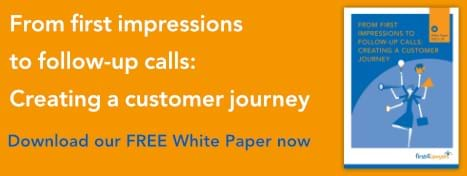Explaining Complicated Subjects Simply

As a highly educated and knowledgeable legal professional, it’s entirely understandable that you might occasionally overlook the fact that not everyone is. But addressing clients and leads as you would your colleagues can lead to a disconnect between you and your website visitors.
So it becomes absolutely crucial to explain your complex field of expertise in such a way that everyone can comprehend the details.
When you deal with something every day, the complexities can become mundane. You know everything there is to know about your area of law. That makes it easy to slip into your professional manner when talking to clients, who could easily lose the thread of the conversation.
And as easy as it is to do in person, it’s potentially even easier to do in writing. You don’t have anyone in front of you to let you know through body language or questions whether you’re going too in-depth for them.
So you’ll need to be mindful of how you’re explaining things on your website.
Don’t lose your audience
Remember who your audience is: everyone.
Just about anyone could have an accident and need to make a personal injury claim. And on the non-injury side, you’re targeting male and female divorcees of all ages, virtually all employees and people looking to buy or sell their homes. That’s a huge swathe of the population.
And when everyone is your target audience, everyone needs to be able to understand. As we explained in our guide to writing for users and search engines, there are some sizeable disparities in reading age in the UK.
According to the Literacy Trust, 15% of adults in the country have a reading age equivalent to that of a 10-year-old. When Latin features heavily in legalese, you’ll probably lose your audience if you start using that kind of language.
When leads don’t understand, they might be pushed elsewhere. Landing page creation firm Unbounce found that the more difficult a page is to read, the lower conversion rates will be. It highlights how important it is to keep your communications as straightforward as possible.
Think like a client
Educator and media personality Dr Emily Grossman advises that when it comes to technical detail, you should include “as little as possible”. Technical language isn’t recommended. What you will want to do, though, is think like your clients.
Think about if you’d have been comfortable with understanding something before you started your legal studies. Would a reader without any legal knowledge understand what you’re saying? There’s a popular theory that Einstein once said that “if you can’t explain it simply, you don’t understand it well enough”. Regardless of its veracity, you can use this as guidance. Set your firm apart from its competitors by proving how well you understand your subject.
As a result, it could be worth investing a little time in a legal thesaurus. Come up with different ways of explaining technical legal issues and refer to it when writing for your website. Get your whole team to contribute. Other colleagues without your level of nuanced knowledge, like receptionists and PAs, could provide a new way of phrasing topics.
Use examples of cases you’ve won. If a concept is difficult to explain, try doing it through real-world case studies. It can help prospective clients identify with those previous clients, which can make them more likely to convert on your site.
Short sentences are easier to read. Avoiding complicated grammatical structures can also make your page easier to read. You can find plenty of free online tools to check the simplicity and readability of your text – from WebFX to Grammarly. Use one of these before publishing to catch anything that might stop a user in their tracks.
Be mindful of your reader
Focusing on the salient details of a service and being mindful of who will be reading about it will get you one step closer to a straightforward explanation.
By using subheadings and bullet points, you’ll draw your reader’s eye to the points you want to emphasise. You can’t assume a visitor to your site is going to read every word on the pages they visit so if you want to get important information across, you might need to direct users to it.
The important thing is simply to make information as easy to access for every visitor as possible. When more people comprehend what you can do for them, you could see greater numbers of them taking you up on your offer.


